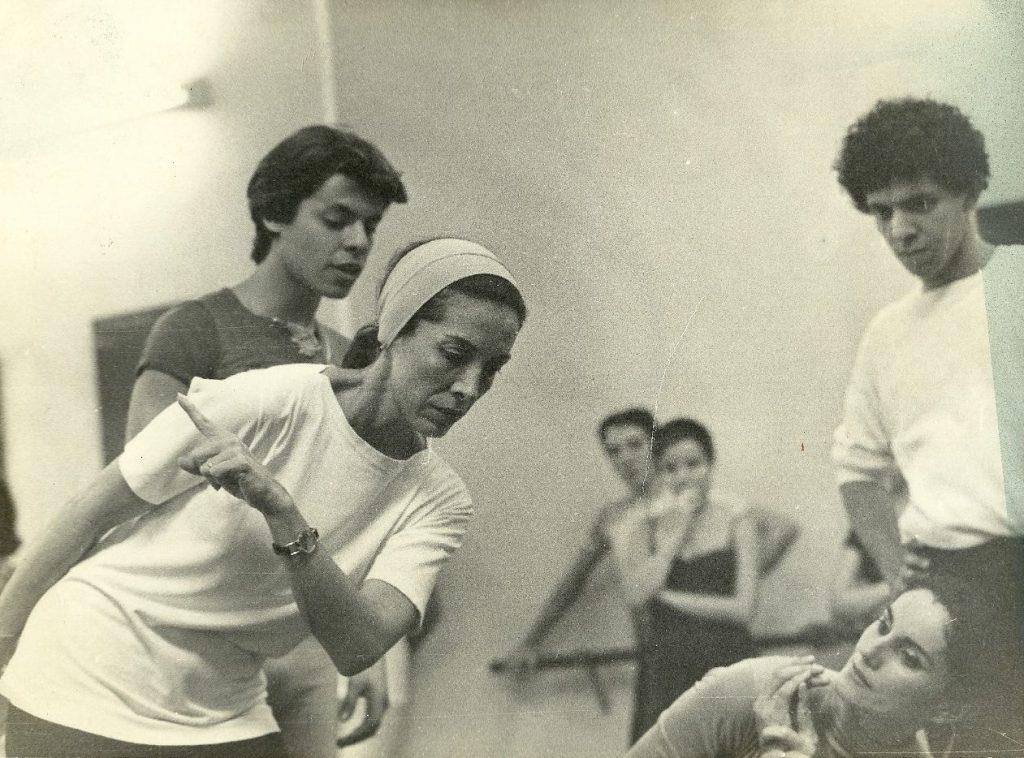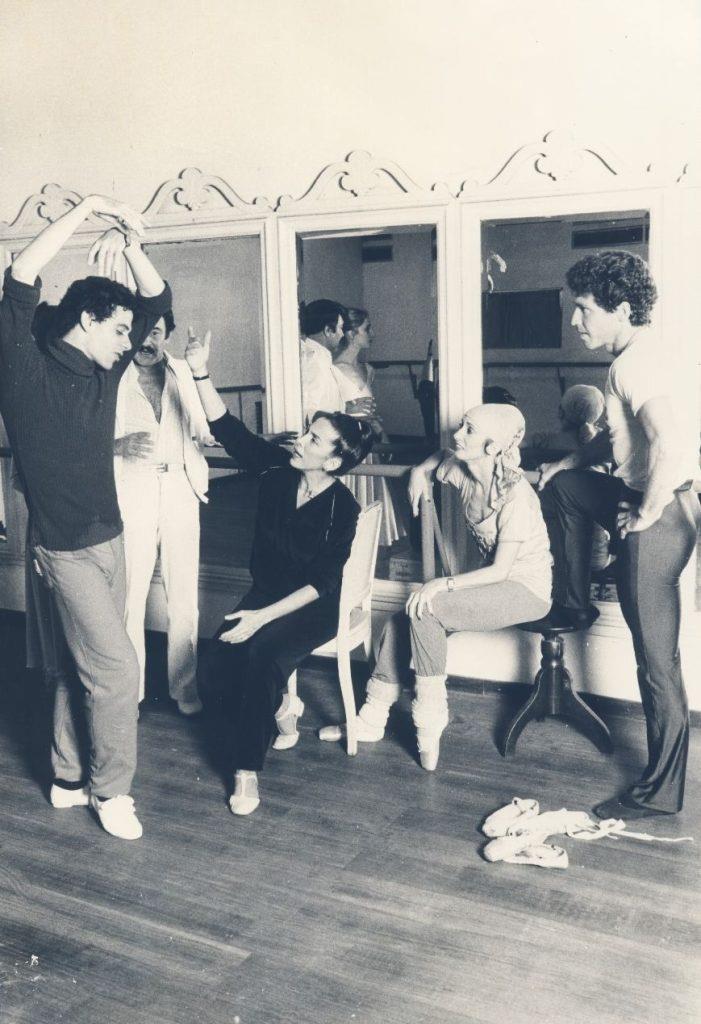From Lebanese Roots To Brazilian Ballet
“I lived in Lebanon from the age of 10 until I was 13 or 14. We sometimes came to Brazil because my father had business here, but we always went back there. That's why I feel Brazilian, but I also feel very Lebanese. Lebanon gave me roots, a connection with history and culture that made me mature and inspired my creativity,” she says.
Back in Brazil, ballet emerged as her calling. But since dance was not yet widespread in the country, Achcar began her formal studies with difficulty. When her mother, who had been widowed very early, remarried a Polish man passionate about music and culture, it was her stepfather, Henryk Spitzman Jordan, who encouraged her to study dance in Paris and take her first steps toward becoming a professional.

Dalal Achcar: Her talent in ballet was quickly recognized
The decisive moment in her career, however, came a few years later with the encounter of one of the greatest stars in world ballet, Margot Fonteyn, who was captivated by the young Brazilian's talent and invited her to complete her studies in London.“That's how my professional career began. I was supposed to stay for a month, but I ended up staying a year, learning everything and performing,” she recalls.
From then on, her career took on an international scope. Achcar represented Brazil at a gala for the Royal Family in London, toured across Europe, and staged productions alongside some of the leading figures in Brazilian art.

The ballerina shared her knowledge and taught
In her youth, back in Brazil, she founded the Balé do Rio de Janeiro, a non-profit association dedicated to providing opportunities for talented young dancers with no access to training. Later, she brought to Brazil the methodology of the Royal Academy of Dance in London, which revolutionized ballet teacher training in the country.
“I spent ten years traveling all over Brazil to train teachers and implement this methodology. It raised the standard of instruction and made Brazilian dancers competitive on the international stage,” she says.
In the 1970s, she founded a school bearing her name. The institution, which teaches dance, grew and remains a benchmark for ballet in Brazil to this day. At the same time, within the school, she developed the social project“Dance as a Power for Transformation,” which offers free classes and professional training to children and young people from vulnerable communities. Achcar notes that many of the talents trained through the project have gone on to secure positions in internationally renowned companies.
“The social project allows young people who wouldn't otherwise have opportunities to find a path. We already have Brazilians dancing in companies in Europe, the United States, and even Australia,” explains the Brazilian.
In addition to her life as a dancer and ballet school owner, Achcar also worked as a choreographer. In this role, she directed the Ballet of the Rio de Janeiro Municipal Theatre and later oversaw the entire Municipal Theatre Foundation, which manages opera, orchestras, and the ballet company. During her tenure, she brought thousands of students to performances, democratizing access to the arts and fostering exchanges with major international centers.
Connection with LebanonAchcar says that her bond with Lebanon remains strong in her life. She treasures memories of her grandmother, the family homes in different regions of the country, and Lebanese hospitality. She plans to take her son and grandchildren on a future trip so they can experience the land of their ancestors.“Lebanon is a country of history and culture. It's a blessed place, with very kind people. I have always felt a sense of belonging, and I still want to return many times,” she says.
Even after decades of her career, she still maintains an intense routine: running the school, rehearsing the company, writing articles, and preparing new choreographies. When asked about her age, she responds with humor:“If I stop to think about my age, I won't get anything done. I work 14 hours a day, and that keeps me active and young.”
Read more:
Granddaughter of Arabs at Brazil's Electoral Court
Translated by Guilherme Miranda
SuppliedSuppliedSuppliedThe post From Lebanese roots to Brazilian ballet appeared first on ANBA News Agency .
.jpg)
Legal Disclaimer:
MENAFN provides the
information “as is” without warranty of any kind. We do not accept
any responsibility or liability for the accuracy, content, images,
videos, licenses, completeness, legality, or reliability of the information
contained in this article. If you have any complaints or copyright
issues related to this article, kindly contact the provider above.
Most popular stories
Market Research

- $MBG Token Supply Reduced By 4.86M In First Buyback And Burn By Multibank Group
- PLPC-DBTM: Non-Cellular Oncology Immunotherapy With STIPNAM Traceability, Entering A Global Acquisition Window.
- United States Acetic Acid Market Size, Growth & Forecast 2033
- Kucoin Presents Kumining: Embodying Simple Mining, Smart Gains For Effortless Crypto Accumulation
- Japan Well Intervention Market Size To Reach USD 776.0 Million By 2033 CAGR Of 4.50%
- BTCC Announces Participation In Token2049 Singapore 2025, Showcasing NBA Collaboration With Jaren Jackson Jr.


















Comments
No comment